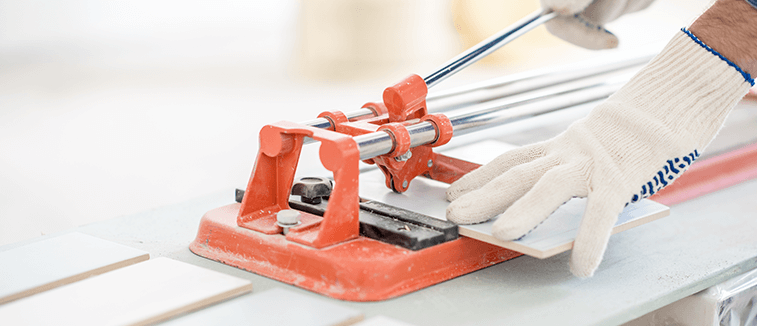Tiler
Fit and lay tiles onto walls and floors, using materials like ceramics, slate and marble.
Job opportunities
-
Jobs in Jobstreet right nowJob growth
-
In the last yearSalary
-
Typical monthly salaryJob satisfaction
-
Job opportunities
-
Jobs in Jobstreet right nowSalary
-
Typical monthly salaryJob growth
-
In the last yearJob satisfaction
-
What's it like to be a Tiler?
Tilers lay ceramic, clay, slate, marble, glass and other types of tiles on external and internal walls and floors to provide protective and decorative finishes. They may work on new buildings or private and commercial renovations. Tilers provide quotes and estimates on the number of tiles and quantities of materials required, installation time and costs. They also lay tiles in accordance with a tiling plan and prepare surfaces by removing old grout and cement as well as by cleaning and levelling surfaces.
Tasks and duties
- Examining plans and measuring surfaces.
- Preparing surfaces for new tile fitting by levelling off with plaster, sand or cement.
- Picking suitable tiles for clients’ needs and budgets.
- Laying and grouting tiles evenly and cleanly.
- Cutting tiles to the correct size and shape.
- Working with other tradespeople.
- Ordering materials and parts.
- Waterproofing surfaces when appropriate.
- Consulting with project managers and clients.
- Decorating and protecting floors and walls using all kinds of tiles.
How to become a Tiler
There are several routes to becoming a Tiler. You could take a college course, an apprenticeship, or on-the-job training. The most common pathway to becoming a Tiler is completing a relevant Vocational Education Training (VET) qualification through an apprenticeship. It may be possible to find work as a Tiler with no qualification, but you’ll need to show you have plenty of hands-on experience.
- 1.Consider completing your high school certificate also known as Sijil Pelajaran Malaysia (SPM) and take subjects such as maths and trades.
- 2.Complete a tiling apprenticeship. An apprenticeship with a construction firm is a good way into the industry. Apprenticeships are open to anyone over the age of 16. This will help you gain hands-on experience.
- 3.Complete a relevant Vocational Education Training (VET) course. Your training provider may offer relevant courses to help you train as a wall and floor tiler, including Certificate in Wall and Floor Tiling, Diploma in Wall and Floor Tiling and Certificate in Wall and Floor Tiling for Property Maintenance.
- 4.Start working full-time as a Tiler and continue to build on your skills and experience.